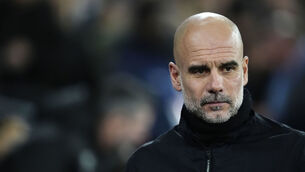Enjoy the ones you have, not what got away
The story of last weekend might have been Ireland emphatically denying England the Grand Slam but the story of this year’s Six Nations is that it was a championship Ireland let slip out of their hands and into England’s.
Only for a couple of silly penalties conceded against France and a farcical line call in Cardiff, Brian O’Driscoll and his team should have been celebrating a fifth Triple Crown and second Grand Slam and championship in eight years.











